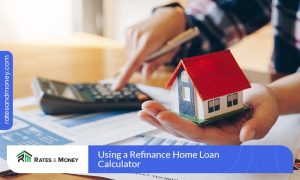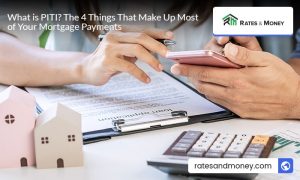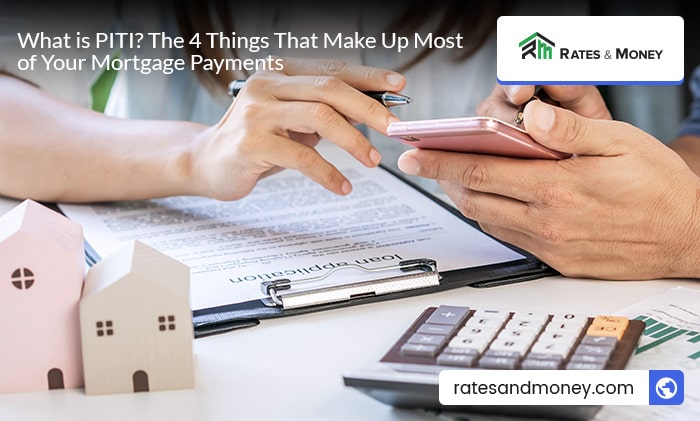Pay Off Mortgage Before Retirement: Yes or No?

Table of Contents
Trying to decide if you should pay off your mortgage before you hit retirement age, or use your cash for something else and carry your mortgage into retirement? There are arguments to be made on both sides of the “pay off mortgage before retirement” issue. Here’s what you need to know to make an informed decision, according to the experts at Rates & Money.
If you’re nearing retirement age, and bought a home in your early thirties, odds are you had a conventional 30-year fixed-rate mortgage that conformed to standard loan limits. You’re probably getting close to paying it off completely. Should you do it before you hit retirement age?
Paying off your mortgage before you retire could be a smart financial move, but it’s not the best choice for everyone. Depending on your current mortgage interest rate, the balance left on your mortgage and built up equity in your home, and whatever assets and retirement savings you’ve accumulated, you may decide to put your money to other use and keep making that monthly payment.
Benefits Of Paying Off Your Mortgage Before Retirement
Some of the biggest advantages to paying off your home loan before you retire include:
- Stress reduction and peace of mind
- Lower monthly bills
- Higher cash flow
- A strong equity cushion
- Significant savings in mortgage interest
Paying off your mortgage as you approach retirement age can give you peace of mind and increase your cash flow, letting you enjoy your golden years in security. You can turn your attention and extra money formerly designated for monthly mortgage payments to padding your retirement account, whether you choose less risky investments or to dabble in stocks with a higher risk profile but a higher potential payoff. Your financial planner can help you determine if you can increase contributions to a 401 K or look for investments with a higher rate of return.
Drawbacks of Paying Off Your Home Loan Before You Retire
You may be sold already on the idea of paying off your mortgage before you retire, but remember there are both pros and cons to this plan. If you are at all worried about liquidity, tying up a large portion of your available money in your home can make it difficult to react quickly if you experience an emergency.
If you keep making your monthly payment and put the rest of your money in an investment account, you can quickly tap those funds if required to handle a financial issue, without having to go through the equity loan process. You can always talk with a lender or bank about opening up a home equity line of credit that you can access if needed.
Other reasons you might want to pump the brakes on paying off your mortgage early include tax liability; you won’t qualify for annual deductions for interest payments. You’ll also lose access to money that might be better off invested at a higher rate of interest than you currently pay for your mortgage. If you have a fixed rate loan, you’ll also be losing what might be a valuable hedge against inflation by paying off your home. This could even make you think about refinancing the balance of your mortgage for a longer term.
Mistakes To Avoid When Paying a Mortgage Off Before Retirement
If you’ve decided to pay off your home loan early, pause and make sure it makes financial sense and there aren’t going to be any nasty surprises. There are a lot of different financial products and services involved with mortgage loans, and if at any point you refinanced or reamortized your loan you could have ended up with a prepayment penalty clause. If you end up having to pay the whole amount with interest even if you pay early, it’s not a good financial decision. You’d be better off investing your extra money to make a profit and just continue to pay your mortgage as usual.
Another common mistake is getting excited about being able to pay your home loan off early, then getting into financial trouble. Suddenly you need money, and what can you do? If there’s no time to tap into the equity in your home, you might have to turn to your retirement account and pay an early withdrawal penalty. Paying to access your 401 K in advance of retirement can erase all of the benefit you may have gained by closing out your mortgage pre-retirement.
Factors To Consider When Paying a Mortgage Off Early
The main factors you need to think about if you are considering the option to pay down your mortgage before retirement are:
Retirement savings. If you don’t have a lot of money banked, it’s a smart financial move to invest to earn a higher interest rate than you pay on your loan.
Liquidity. Are you sure you don’t anticipate any sort of emergency or ask from a family member you’ll need a large chunk of cash to meet? Tying up all of your money in your home can be risky.
Pre-Retirement Mortgage Payoff Tips
Before you pay off your mortgage early, look at your whole financial situation. Can you:
- Pay off high interest rate credit card or personal loan debt first
- Add more money to a 401 K or Roth IRA
- Make a good investment with a high rate of return
If any of these make more sense than an early mortgage payoff, sink your extra cash into them instead and just keep making your mortgage payments as planned.
Finally, you might even consider buying an investment property as you go into retirement, especially if you can get a favorable mortgage rate. If you pay off your first mortgage, you can use your home as leverage to buy a second, rent it out for more than that mortgage payment, and increase your post-retirement income.
Rates & Money is your go-to destination for free information about mortgages. Our home buyer guides and home loan articles are designed to help you make informed decisions when buying a home. View loan limits in your area.
Subscribe to our newsletter
Receive the latest news, tips, and free tools from Rates & Money.





